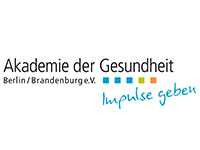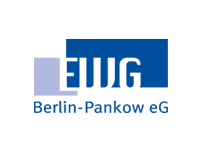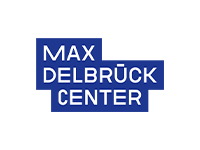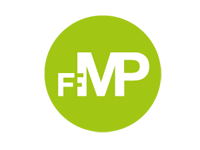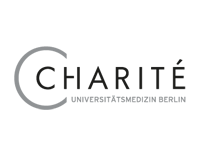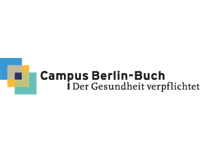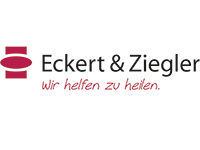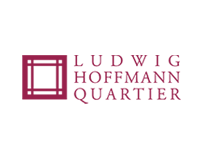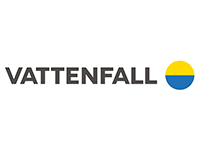Your selection
Research, Innovation, Patient care / 09.01.2024
"More Entrepreneurial Thinking in Research"
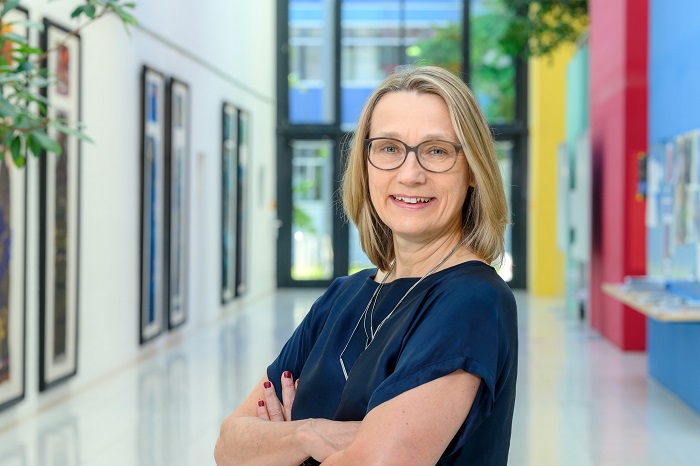
Interview with Professor Maike Sander, Scientific Director of the Max Delbrück Center
How does the Campus Berlin-Buch promote or nurture the successful commercialization of life science knowledge?
At Campus Buch, we do fundamental research in various disciplines, all related to biomedical discovery. This includes research at the Max Delbrück Center, the FMP, but also at the Charité – Universitätsmedizin and the Berlin Institute of Health (BIH). This ecosystem serves as an intellectual incubator for ideas, including medical applications. We have already seen numerous start-ups emerge from basic discoveries at Campus Buch. Much of this work has been collaborative and cross-institutional. The most prominent example is, of course, T-knife which originated as a joint project between the Max Delbrück Center and Charite. T-knife develops T-cell therapies for solid tumors using tailored T-cell receptors. The company started here on Campus Buch and now has a branch in San Francisco. But T-knife is not the only company that has been launched based on research at Campus Buch. Recent spin-offs include MyoPax and CARTemis Therapeutics, both deeply rooted in institutions such as the Max Delbrück Center and the Charité. MyoPax combines cell and gene technology to regenerate and restore muscle function after an accident, in cases of muscle atrophy, or in muscular dystrophy. CARTemis, on the other hand, is pioneering cell-based immunotherapies for cancers that were previously considered untreatable. Campus Buch provides the space and facilities to house these emerging companies in close proximity to the labs that initiated these innovations. This proximity is crucial, especially in the early phase of starting a company.
You are referring to the new BerlinBioCube start-up incubator on Campus Buch. How can it contribute to knowledge transfer and networking between science and business?
The BerlinBioCube enriches the campus in two significant ways. First, it provides space for emerging companies; the impact of having this space next to institutions like the Max Delbrück Center, FMP, Charité, BIH cannot be underestimated. Second, it brings an entrepreneurial mindset to our campus. Scientists are typically not trained to start companies, and there is little knowledge of what investors are looking for or what it will eventually take to bring a new diagnostic or therapy to market. By hosting joint networking events between the scientific institutes on the campus and budding companies in the BerlinBioCube, we can learn from each other and bring more business acumen to the scientists in our institutions.
How can we make spin-offs from research institutions even more attractive?
Researchers are often concerned that founding a company could distract them from their scientific pursuits. Examples in the US and Israel show that this does not need to be so. Often the students and postdocs launch the companies, while the PI moves on to work on the next innovation with the next generation of trainees. As institutions, we can support commercialization by providing additional resources to help PIs adapt their technologies and discoveries to launch a start-up. So, it doesn’t have to be a choice between launching a company or continuing the research.
What can we learn from startup hubs in the USA and Israel/Tel Aviv?
What these hubs have, and what we need to build more of in Berlin and Germany, is a close exchange between scientists, entrepreneurs, and investors. The successful hubs in the US and Israel have a functioning ecosystem where people from these different worlds meet regularly. In our science institutions, we need to bring more of an entrepreneurial mindset to science and scientists. In the U.S., many scientists now earn a dual PhD/MBA. The younger generation of scientists wants to create societal value from their discoveries through commercialization. We can build that here by offering training through our graduate school and other channels. Having BerlinBioCube on the campus will also be a huge asset, because it will nucleate the exchange. Another important component is, of course, investor money. We need to come together as institutions to show international investors how much we have to offer. Science in Berlin and Germany is very strong, so it’s most definitely not a matter of a lack of excellence at the beginning of the pipeline.
How can research benefit even more from proximity to biotech companies?
Networking events will be a huge amplifier. Ultimately, it’s all about people learning from each other and inspiring each other.
Overview News
News Buch Berlin
The Imaging Innovation Center hits a milestone
The Max Delbrück Center, Berlin, celebrates its new, innovative research building with a “topping-out ceremony.” The Imaging Innovation Center, designed by the architectural firm heinlewischer, will h...
more ...Giant with a Ceramic Heart
A new NMR spectrometer has been in operation at the Leibniz-Forschungsinstitut für Molekulare Pharmakologie (FMP) since the end of May.
more ...Holger Gerhardt new member of the DZHK Board of Directors
Professor Holger Gerhardt from the DZHK partner site Berlin was newly elected to the Board of Directors by the General Assembly: He will take office on 1 July 2024.
more ...Events Buch Berlin
17.08.2024, 21:15
Open Air Sommerkino in Hobrechtsfelde: "Dirty Dancing"
Kultfilm von 1987
more ...10.09.2024, 09:00
From Target to Market - The GLA Biotech & Pharma Summer School
The 4-day intensive course provides a comprehensive overview of the entire drug development process in biotechnology and in the pharmaceutical industry – from the idea to the market.
more ...12.09.2024, 09:00
Realtime PCR und digital PCR Kurs
Der RealTime PCR und Digital PCR Kurs richtet sich an erfahrene PCR Anwender*innen und an Einsteiger*innen. Wichtige PCR Grundlagen werden erörtert, bevor die RealTime PCR besprochen und Genexpression...
more ...